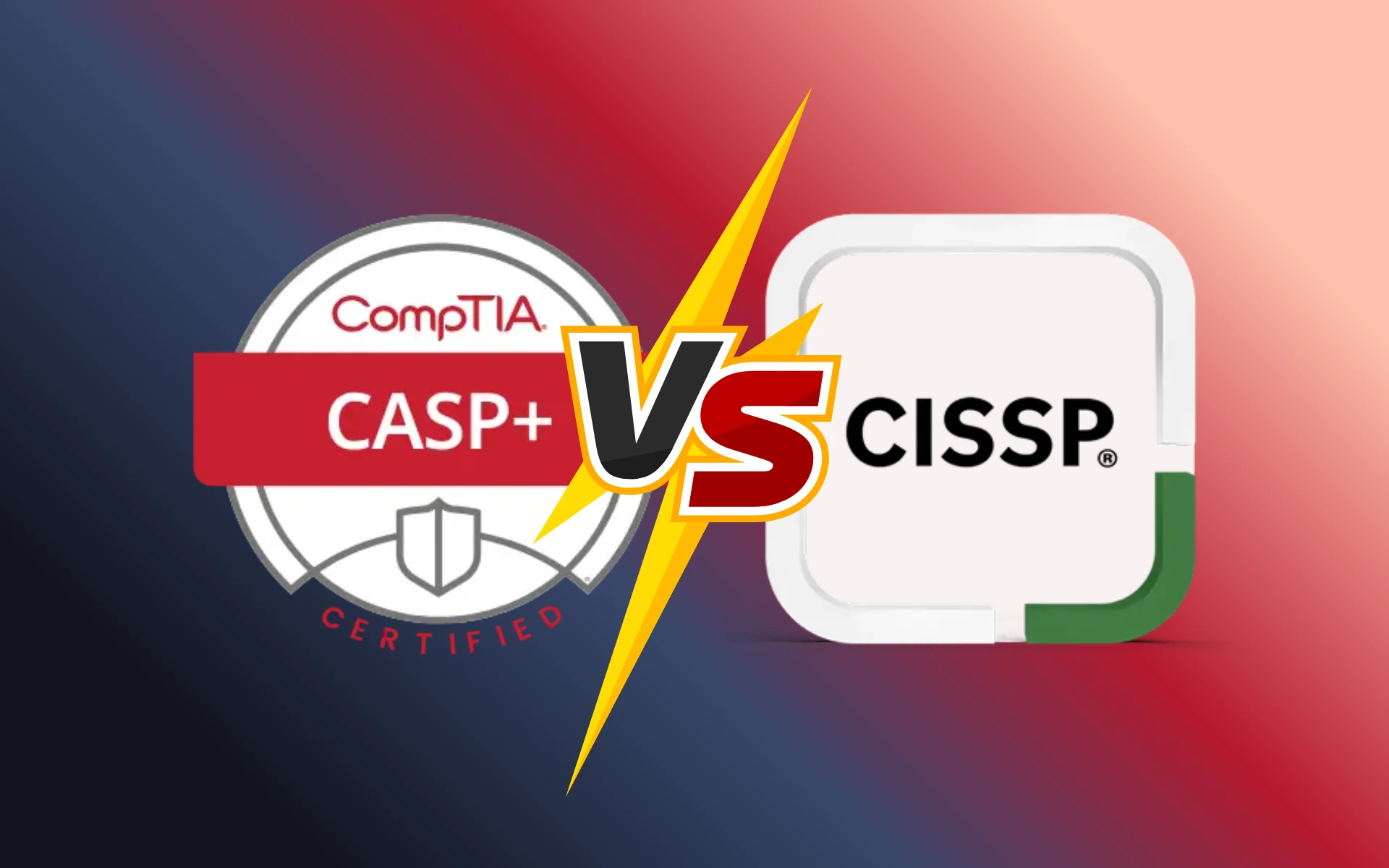There used to be times when cybersecurity was just a niche industry, but now it has evolved into a global necessity. In 2024, businesses lost $4.88 million on average due to data breaches alone.
Among various cybersecurity roles, penetration testers (ethical hackers) are at the forefront of the fight against cyber threats. Did you know, the penetration testing industry alone is expected to be valued at $4.5 billion by 2025.
If you have a knack for problem-solving, a curiosity about how things work, and a desire to help organizations stay secure, becoming a penetration tester is a perfect career path for you. career path. In this guide, we’ll walk you through the essential skills, cybersecurity certifications, and real-life strategies to break into and succeed in the exciting world of penetration testing.
What Is a Penetration Tester?
A penetration tester, also known as an ethical hacker, is a cybersecurity professional who’s paid to break into systems legally. Their job is to simulate cyberattacks on networks, applications, and devices to find and fix security weaknesses before real hackers exploit them.
Organizations hire penetration testers to assess everything from cloud environments and mobile apps to IoT devices and internal networks. The results often feed into detailed reports that help businesses improve their defenses and meet compliance standards.
In short, pen testers don’t just find vulnerabilities, they help prevent million-dollar breaches.
Day-to-Day Activities of a PenTester
Wondering what a typical day looks like? It varies, but here’s the routine:
You’ll start your morning digging into security flaws. Maybe it’s a web app. Maybe it’s an insecure API. After lunch, you could be writing a custom exploit or documenting test results for the team.
Daily activities often include:
- Running manual and automated security tests
- Reviewing and tweaking code
- Writing detailed (but digestible) reports
- Running validation tests after fixes
- Briefing developers and leadership
If you love solving puzzles and thinking like a hacker, you’ll never be bored in this role.
Sample Job Description
Below is a sample job description for a senior penetration tester role:
Key Responsibilities:
- Conduct in-depth penetration tests across web apps, network infrastructure, cloud environments, wireless, and mobile platforms
- Simulate real-world attacks through Red Team operations and collaborate with Purple Teams to test and improve security defenses
- Perform manual testing beyond automated tools to uncover deep vulnerabilities
- Lead test planning, execution, reporting, and post-test briefings
- Clearly communicate risks, findings, and remediation strategies to both technical teams and executive leadership
Preferred Qualifications:
- Strong hands-on experience in ethical hacking and penetration testing
- Familiarity with tools like Burp Suite, Metasploit, Wireshark, and custom scripts
- Relevant certifications such as OSCP, GPEN, or GXPN (preferred but not mandatory)
- Experience in securing systems tied to national defense, critical infrastructure, or regulated industries is a plus
Security threats evolve fast, and so should you. Many companies such as …..now expect penetration testers to stay sharp with AI-driven techniques and automation skills. That means continuous learning isn’t optional anymore, it’s the norm. If you want to stay ahead of attackers, you need to upskill.
With uCertify’s Artificial Intelligence for Cybersecurity, you can ensure that you master real-world tools and how artificial intelligence is shaping the modern information security industry.
Heading Of The CTA

Artificial Intelligence for Cybersecurity
Learn how to utilize the power of AI for guard railing your digital assets. Streamline, structure and automate complex tasks.
Learn MoreCore Skills Needed to Become a Penetration Tester
Becoming a successful penetration tester isn’t limited to just some tools and terminal commands. Penetration testing is a blend of sharp technical and soft skills to help you progress in your career.
Technical Skills
These are the technical skills that need to be at the forefront of your arsenal:
- Network Security: Strong understanding of protocols, identifying weaknesses, and securing communication channels.
- Web Application Security: Locate common exploits such as SQL injection, XSS, and logic flaws.
- Operating System Exploitation: Knowledge of navigating and exploiting Windows, Linux, and macOS systems.
- Programming & Scripting: Test automation and custom tools creation with Python, Bash, and PowerShell.
- Cryptography: Analyze encryption methods and identify weak implementations.
- Reverse Engineering: Ability to break down binaries and malware to understand how they operate.
- Cloud Security: Securing environments on cloud platforms such as AWS, Azure, and GCP.
- Wireless Network Security: Crack Wi-Fi defenses and secure wireless communication.
- Vulnerability Assessment: Knowledge of tools such as Nessus, Nmap, and Burp Suite to scan and report.
Soft Skills
You might be thinking, What kind of soft skills do I need to become a penetration tester? But rest assured, these soft skills are super crucial, and they can either make or break your impact.
These are the soft skills that you need to have as a pentester:
- Critical Thinking: Spot patterns, think like an attacker, and adapt your strategies.
- Problem-Solving: When one path fails, pivot quickly and find another way in.
- Communication Skills: Explain technical stuff to non-tech teams without the jargon.
- Attention to Detail: The smallest misconfigurations can lead to major breaches.
- Team Collaboration: Work closely with Red, Blue, and Purple Teams.
- Adaptability: Stay cool under changing environments and pressure.
- Time Management: Juggle multiple engagements without missing deadlines.
- Ethical Judgment: Remember, you’re a white hat, act responsibly.
- Creativity: Sometimes the best exploits come from out-of-the-box thinking.
- Continuous Learning: Stay updated with tools, tactics, and emerging threats.
How To Make Recruiters Notice You?
Let’s be honest, no one hires based on buzzwords anymore. It’s all about proof of work. Here’s how you can actually show that you’ve got the chops:
Join Capture the Flag (CTF) Competitions
Think of these as the Olympics for hackers. You’re handed real-world scenarios and asked to break, bypass, or decode your way through them. Win or lose, showing up to these speaks volumes. You can also list your scores right on your resume.
Contribute to Open-Source Security Projects
You don’t have to be a rockstar dev. Fix a bug, write documentation, or add a feature to a tool you actually use (like Burp Suite plugins or Metasploit modules). It shows initiative, curiosity, and collaboration. These are the traits all hiring managers drool over.
Write About Your Pentesting Journey
Ran a test?
Found a bug?
Solved a challenge? Blog it.
Create a Medium article or GitHub writeup showing your approach (just keep it legal and anonymized). This not only shows your thinking, but it also builds your personal brand in the community. Bottom line? If you want to break into (or level up in) pentesting, don’t tell us you’re skilled, show us. Your GitHub, blog, CTF rankings, and certs are your portfolio. Make it loud.
How to Start a Career in Penetration Testing
Getting into penetration testing involves a blend of technical skills, continuous learning, and practical experience. Even transitioning from a different role to penetration testing is not rocket science.
Here’s a step-by-step guide, to help you become a penetration tester with ease:.
1. Build Core Pentesting Skills
Begin by acquiring a solid foundation in areas such as network and application security, programming languages (like Python and BASH), and familiarity with operating systems (Linux, Windows, macOS). Proficiency in tools like Burp Suite, Nmap, Wireshark, and Kali Linux is also essential.
2. Enroll in a Structured Training Program
Jump-starting your pentesting career doesn’t have to be overwhelming. A structured course helps you build both foundational knowledge and hands-on skills in one place. Look for training programs that combine proper, structured lessons, real-world labs, and certification prep in a single experience. But you don’t need to look here and there, we have got you covered. uCertify offers comprehensive cybersecurity courses mapped to top certifications, packed with hands-on labs, assessments, and smart study tools that guide you from beginner to job-ready.
3. Get Certified
Certifications validate your skills and can enhance your credibility. Notable certifications include:
- Certified Ethical Hacker (CEH)
- CompTIA PenTest+
- Offensive Security Certified Professional (OSCP)
- GIAC Penetration Tester (GPEN)
We will delve deeper into the certificates in the next section, so stay tuned 😉
Heading Of The CTA
_000yzw.webp)
CompTIA PenTest+ Certification Training
Have you ever wondered about the dark side of cybersecurity, and how you can make it work in your favor? Then, CompTIA’s PenTest+ is ideal for you.
Learn More4. Practice in Simulated & Real Environments
You don’t need a job to start hacking legally, of course. Here’s how to build real-world skills:
- Join CTF Challenges: Test your offensive security skills through timed challenges that simulate real-world exploits and vulnerabilities.
- Explore Bug Bounty Simulations: Learn how to identify and report security flaws through hands-on scenarios that mirror real bug bounty programs.
- Train with uCertify’s Hands-On Labs: Get browser-based labs mapped to industry certifications without any setup. Practice everything from web app security to wireless attacks, cryptography, and more. You’ll get instant feedback, guided exercises, and a sandbox to test your skills safely and confidently.
5. Start in an Entry-Level IT or Security Role
Begin with roles such as:
- Network Administrator
- Security Operations Center (SOC) Analyst
- Systems Administrator
These positions provide exposure to security protocols and system architectures.
6. Begin Your Job Search
Utilize platforms like LinkedIn, Indeed, and specialized cybersecurity job boards such as Dice. Tailor your resume to highlight relevant skills, certifications, and practical experiences.
Top Certifications to Become a Penetration Tester
Earning a recognized certification can significantly enhance your credibility and demonstrate your expertise in penetration testing. Below are some of the top certifications in the field:
1. Certified Ethical Hacker (CEH)
- Offered by: EC-Council
- Cost: $950–$1,199
- Validity: 3 years
The CEH certification is widely recognized in the cybersecurity industry. It validates your ability to identify vulnerabilities and weaknesses in target systems using the same tools and knowledge as a malicious hacker, but in a lawful and legitimate manner.
2. CompTIA PenTest+
- Offered by: CompTIA
- Cost: $404
- Validity: 3 years
CompTIA PenTest+ is an intermediate-level certification that focuses on hands-on penetration testing and vulnerability assessment. It covers the latest penetration testing techniques and is ideal for professionals looking to validate their skills in identifying and managing vulnerabilities.
3. CompTIA Security+
- Offered by: CompTIA
- Cost: $404
- Validity: 3 years
While not exclusively a penetration testing certification, CompTIA Security+ provides a strong foundation in cybersecurity principles.
It covers essential topics such as network security, compliance, and operational security, making it a valuable starting point for aspiring penetration testers.
Heading Of The CTA

CompTIA Security+ Certification Training
It’s network security and risk management in action! Prepare for the Security+ SY0-601 exam to secure a globally recognized certification.
Learn More4. Certified Mobile and Web Application Penetration Tester (CMWAPT)
- Offered by: Infosec Institute
- Cost: $499
- Validity: No expiration (recommended recertification every 3 years)
The CMWAPT certification focuses on testing mobile operating systems and web applications. It validates your ability to identify and exploit vulnerabilities across different mobile platforms and web environments, emphasizing platform-specific security assessment techniques.
5. Certified Red Team Operations Professional (CRTOP)
- Offered by: Infosec Institute
- Cost: $499
- Validity: No expiration (recommended recertification every 3 years)
CRTOP is designed for professionals involved in comprehensive threat simulation and red teaming. It covers areas such as physical reconnaissance, digital reconnaissance, vulnerability identification, social engineering, and assessment reporting, providing a holistic approach to offensive security.
These certifications are recognized for their relevance and rigor in the field of penetration testing. They offer structured learning paths and validate your skills to potential employers. Before enrolling in any certification program, it’s advisable to review the course content and ensure it aligns with your career goals.
Bottom Line
Breaking into penetration testing is a bold move, and it pays off. A clear roadmap exists for becoming a penetration tester. Essential requirements include building technical skills, mastering soft skills, and pursuing hands-on experience. Reputable certifications further strengthen your resume.
Set specific study goals and allocate time to learn network and application security. Dedicate a few hours a week to real-world labs. Consider structured training programs that combine theory with practice.
Most importantly, remain curious and proactive. Showcase your work through blogs, project portfolios, and ethical hacking challenges. Continuous learning is vital in this ever-evolving field.
Take action today. Map out a study schedule, sign up for a course, and begin practicing in safe, simulated environments. The journey to becoming a penetration tester starts with one step.
FAQ:
What is needed to be a penetration tester?
A solid foundation in network security, operating systems, programming/scripting, and familiarity with security testing tools. Hands-on experience and relevant certifications are also essential.
Is becoming a penetration tester hard?
The path is challenging due to rapidly evolving threats and a steep learning curve. However, structured training and persistent practice make it achievable.
Does penetration testing require coding?
Yes. Knowledge of coding languages like Python, Bash, and PowerShell is important for automating tasks, developing custom tools, and analyzing vulnerabilities.
What does a penetration tester do?
A penetration tester simulates cyberattacks on networks, applications, and systems. They identify vulnerabilities, document findings, and recommend improvements to secure environments.
What are the important skills and/or experiences needed?
Key skills include network and web application security, operating system exploitation, programming, vulnerability assessment, and critical soft skills like communication and problem-solving. Practical labs and certifications help build this experience.




_000Zpa.webp)

No Comments Yet
Be the first to share your thoughts on this post!